What does the 2021 Youth Behavior Survey reveal in Jacksonville?
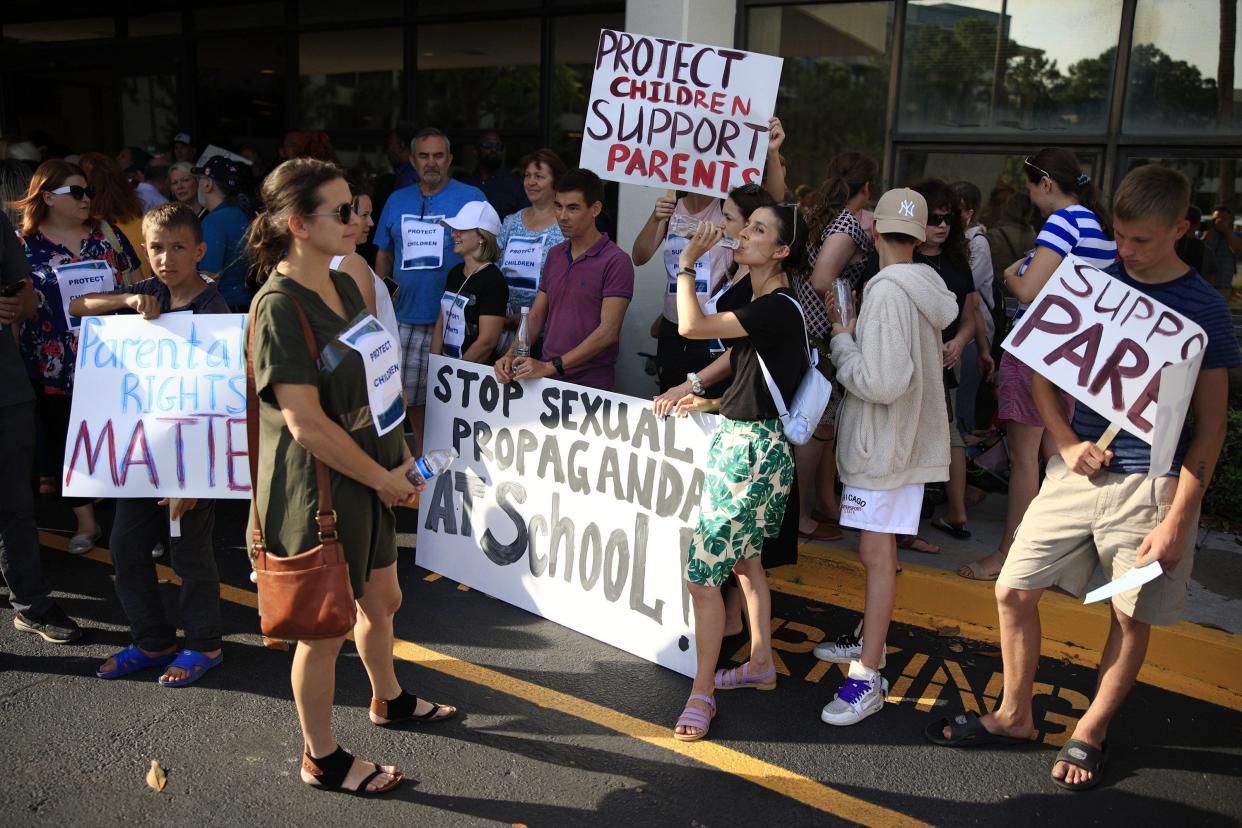
Almost 34% of Duval County middle school students "seriously considered" suicide, while almost 25% "made a plan" to do so and almost 17% actually attempted to end their lives, according to the recently released results of a 2021 survey.
Of the high school students surveyed, about 26% seriously considered suicide, 21% made a plan and almost 17% made an attempt, according to the latest federally funded Youth Risk Behavior Survey.
The number of Duval students with affirmative answers to those suicide-related questions are substantially higher than they were a decade ago when they were 20%, 12% and almost 9%, respectively for middle school students and about 15% for all the questions for high schoolers.
CDC survey nationwide:Teen girls report record levels of violence, sadness and suicide risk, CDC survey finds
"These are incredibly large increases, all three statistically significant and very alarming," said Elissa Barr, a professor of public health at the University of North Florida who is a research coordinator for the U.S. Centers for Disease Control grant that funded the survey. "This is a wake-up call to adults, particularly parents … Our kids are struggling!"
The 2021 survey report is at adobe.ly/3YBXORw. For results of earlier Duval surveys, go to dcps.duvalschools.org/page/19102.
What is the recent controversy surrounding the CDC survey?
The Youth Risk Behavior Survey, which Duval County has administered every two years since 2009, is part of a national initiative led by the CDC. The school district released the 2021 results Feb. 8, while also announcing that the 2023 survey would be administered shortly.
Two days later the district canceled this year's survey at the urging of state Commissioner of Education Manny Diaz Jr. He called the CDC survey "inflammatory" and said the state is developing its own version. Some local parents had already complained to the Duval County School Board about what they called inappropriate questions about sex and other topics being asked of young students in the CDC survey.
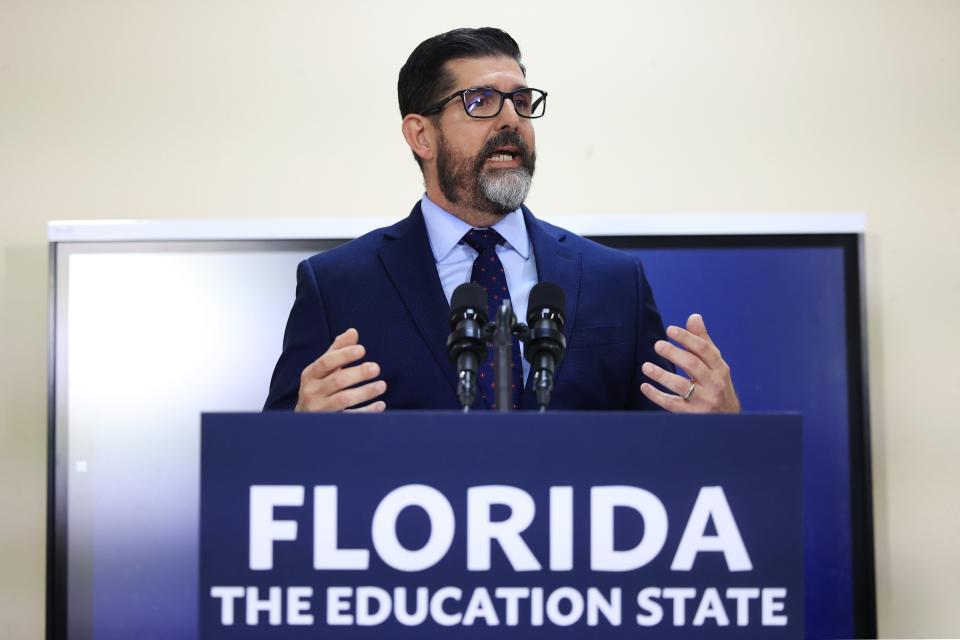
Advocates expressed concern about the end of the survey, which in 2021 was completed by 3,524 students from 21 public high schools and 3,569 students from 27 public middle schools.
"These surveys give students the chance to report for themselves their experiences and risks, especially important in the areas of violence and sexual behavior, which is often invisible to adults," said Cindy Watson, CEO of JASMYN, a Jacksonville nonprofit that helps LGBTQ+ youth and young adults.
Youth Risk Behavior Survey:After 'grave concerns' from state education commissioner, Duval Schools cancel 2023 youth survey
The survey "offers schools and community organizations who care about the health and safety of young people a window into their lives and helps us develop programs and services in response to their risks and behaviors," she said. "In the absence of this kind of anonymous, age-appropriate … survey, our community loses this youth-centered perspective and we are less likely to understand and respond to the layers of youth experience as they define it for themselves."
What does the suicide-related survey data mean?
Edward Spade is a licensed clinical social worker and associate director of clinical services at The LJD Jewish Family & Community Services, a Jacksonville-based agency that provides a range of services to people of all faiths, including counseling and child-abuse prevention.
"These numbers are deeply concerning to educators, mental health professionals and parents," he said.
The increases over the last decade are "extraordinary … troubling for society at large," he said. "Children are our future, and what we are hearing from these statistics is that many … children do not see a place for themselves in this future."
The "enormous" stressors on youth include cyberbullying, which once ended after school but now continues on social media, as well as body shaming, drugs and alcohol, pressure to fit in and gang violence, he said.
Also, the COVID-19 pandemic has worsened their stress, far beyond the long-term social isolation it caused.
"Children have lost family and teachers to COVID," Spade said. Many of them have "parents struggling to maintain a place to live, fear of homelessness and lack of resources such as food and appropriate clothing. All of these affect the child's feeling of safety and self-worth," he said.
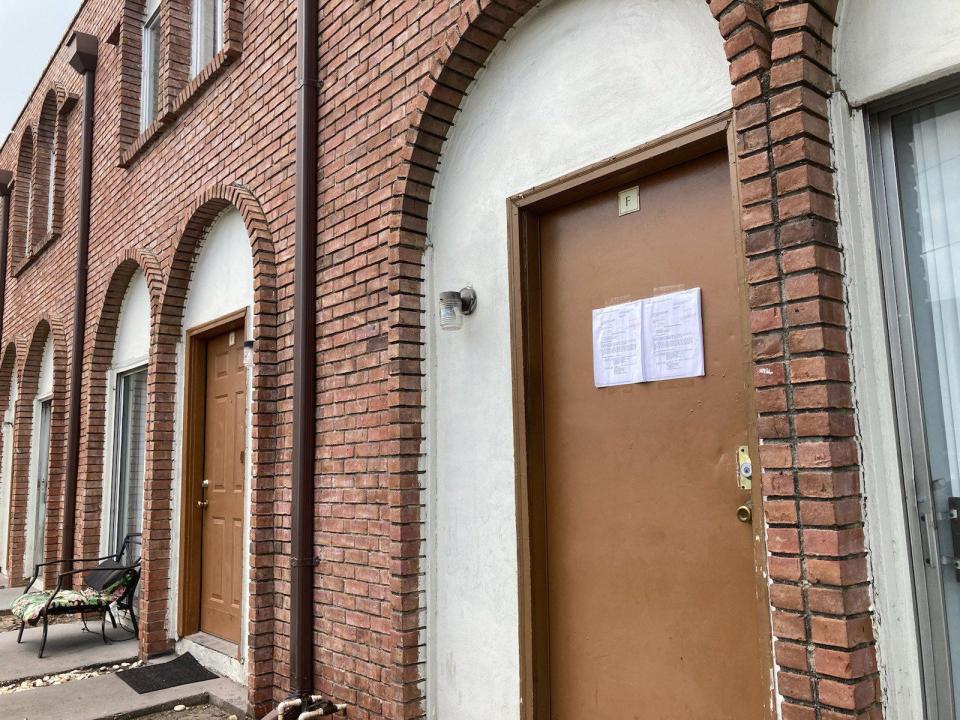
"It comes down to the basic fact that children who live in unsafe situations do feel unsafe, and that reflects on what they expect of others and their world," Spade said.
Middle school, in particular, "is a time of transition for young people as they begin to enter the adult world" and can be a confusing time for parents as well, he said.
"There is a need for privacy and separation as the child begins defining themselves as a young adult," Spade said. "The parent is expected to balance not being intrusive with being aware and available. Children need to be and feel safe, and there is a difference between the two."
Spade had a few recommendations.
"Disconnecting from social media, engaging with supportive and loving family and being valued as individuals can help a child to deal with some of these issues," he said. "But it also comes down to how we, as a community, must find ways to support families."
Jewish Family & Community Services and other nonprofits that work with families provide what Spade called "wraparound services." Families who need counseling may also need food, housing and emergency financial assistance, among other things, and nonprofits can provide those services or connect families to other agencies that do.
"Children … need to have those issues addressed before they can make progress in the area of mental health," he said. "Having access to these additional services can help a family to surmount these issues and restore a level of safety."
Which students are in the most distress?
LGBTQ+ students and girls.
Of the middle school students who reported that they seriously considered suicide, 64% were LGBTQ+, 45% were female; of the high school students, 45% were LGBTQ+ and 31% were female.
JASMYN's Watson said she found the 10-year suicide-related trends for middle and high school students "alarming," particularly for LGBTQ+ youth, referred to in the survey as LGB.
Those students were "consistently reporting these experiences at two and almost three times the rate as their heterosexual peers," she said.
JASMYN:Duval County schools axe contract for LGBT youth group JASMYN after social media controversy
Youth issues:Coach wouldn't let a transgender student join the boys soccer team. Now Duval Schools is apologizing
LGBTQ+ middle school students who have experienced violence "may be more likely to report depression and suicide," Watson said, and about 25% of them reported being involved in a fight on school property. Compared to their heterosexual peers, twice as many LGBTQ+ students reported requiring medical treatment after being injured in a school fight. About 52% of LGBTQ+ students reported bullying on school property, compared to 31% of their heterosexual peers, she said.
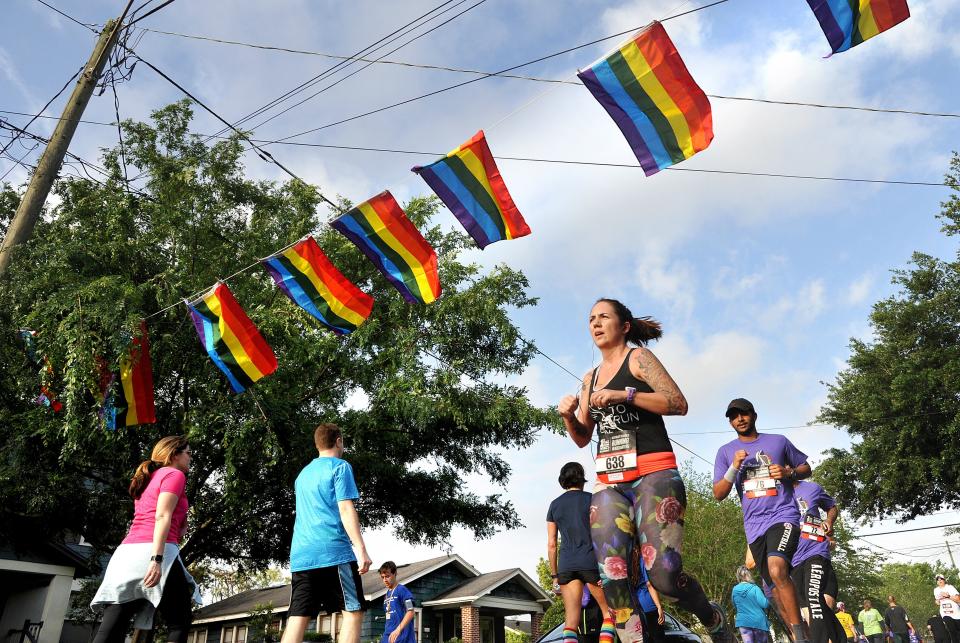
Meanwhile, increasing numbers of high school students who identified as LGBTQ+ reported having been in physical fights on school property. More of them reported being teased or name-called by people who thought they were LGBTQ+.
As a possible result, reports of depression among them "continues to rise at alarming rates," Watson said. But she saw some hopeful signs in the report as well. In the middle and high school surveys, reports of sexual activity continue to decline, "possibly a sign that the comprehensive sex education curriculum is giving students the tools they need to stay sexually safe," she said.
What about the girls?
The distress of girls, as evidenced in the survey results, came as no surprise to Vicky Basra, president and CEO of the Delores Barr Weaver Policy Center in Jacksonville, which helps at-risk girls and studies the issues they face.
"We see in our research and our direct interactions that an alarming number of girls in Florida are experiencingsexual victimization, interpersonal violence, unaddressed mental health issues, homelessness and involvement in the juvenile justice system," she said. "Every year we are losing girls to suicide, sex trafficking, school dropout or juvenile justice system involvement — and this has been exacerbated by the pandemic."
Justice for Girls Blueprint:2022 report reveals girls in Florida are in crisis, 40,000 arrested in last 5 years
Study:'The level of hopelessness ... was striking' among at-risk girls in Northeast Florida, statewide
A shift is needed in how school districts and justice systems respond to girls in trouble, replacing "punitive" actions such as school suspension and arrest, with an effort to "build connections" with them, she said.
"We must make girls a priority in our community and in our state," Basra said. "It is through the building of safe connections that [we] learn what is going on in her life — it is in this space we can provide the supports she needs to heal and grow."
The Policy Center 2022 report, Justice for Girls Blueprint: The Way Forward in Florida, provided a call to action. The plan recommended banning arrests of children age 12 and younger, unless for violent offenses; require all counties implement a civil citation or alternative to arrest program; and invest in a girl-centered, community-based "continuum of care" model.
"What we learned was that while the needs of the girls in our community continue to increase, we lacked in services and resources that specifically focus on addressing girls needs through a girl-centered lens," Basra said. Requiring such 'girl-centered' standards "for all those who serve girls, we can ensure … a clear understanding of girls' needs, especially those who have been impacted by trauma and disconnection."
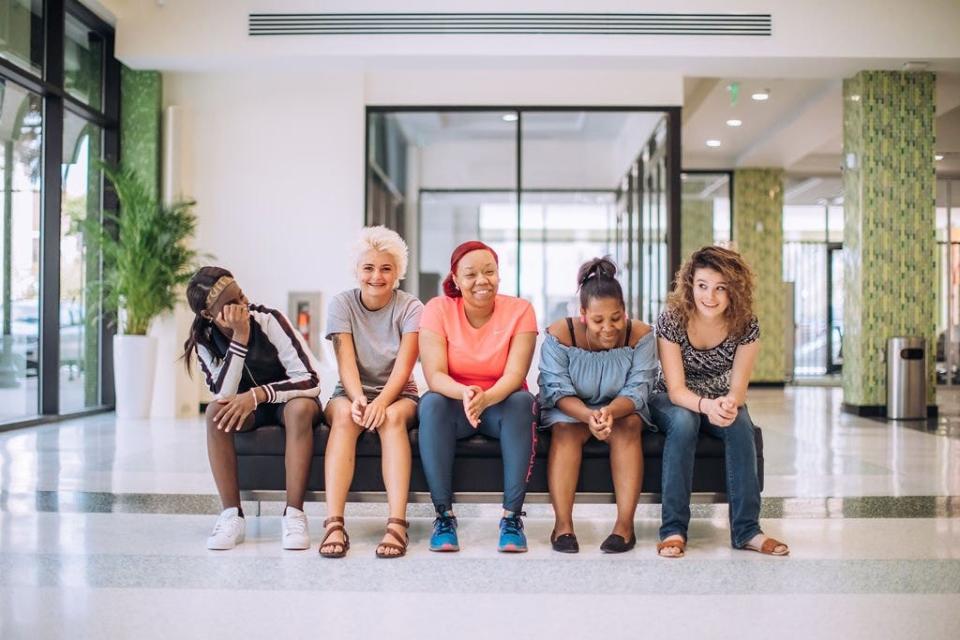
Such standards "keep girls connected and trusting their communities," she said. "The more our services are responding to what girls tell us they need, the more we will see."
Is the whole report alarming?
No.
Among other positive trends, the reports showed 10-year decreases in the percentage of middle school students who said they had had sexual intercourse, down from almost 19% in 2011 to about 9% in 2021. Also, fewer of them had had sex for the first time before age 11, down from about 6% to almost 4%; use cigarettes, down from about 27% to 24%; and rode with drivers who had been drinking alcohol, down from 5% to 4.6%.
2019 survey:Increases in suicide attempts, bullying, opioids among Duval students
Fewer high school students reported being sexually active, down from almost 37% in 2011 to about 23% in 2021, and fewer had sexual intercourse for the first time before age 13, down from about 10% in 2011 to about 4% in 2021. And the percentage of them who currently use alcohol dropped from about 36% in 2011 to about 21% in 2021.
"Today’s youth are making better decisions about their health," said Antonio Nichols, interim administrator/health officer for the Florida Department of Health in Duval County. “We have made great strides inimproving the behaviors that put students most at risk for HIV and sexually transmitteddiseases. Still, there is more work to be done to create healthier environments for our children."
Data in the report, he said, can help "develop solutions and strategies that will result in better health and wellness outcomes for our youth. Schools, families and communities must work together to make sure Duval County’s youth stay healthy now and into their adulthood."
bcravey@jacksonville.com, (904) 359-4109
This article originally appeared on Florida Times-Union: High number of middle, high schoolers in Jacksonville ponder suicide

